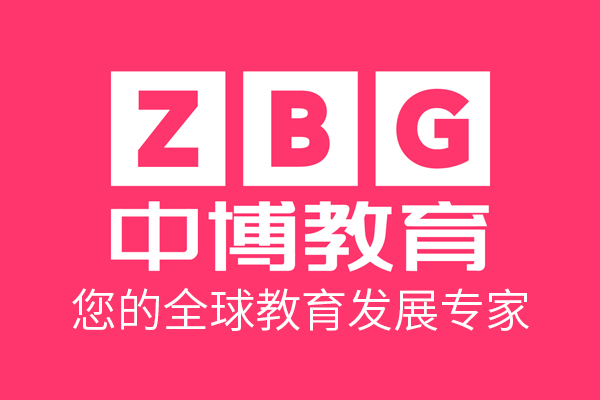ACCA LW清盘:Corporate rescue
![]() 文章来源:ACCA官网
文章来源:ACCA官网
![]() 发布时间:2021-08-11 14:55
发布时间:2021-08-11 14:55
![]() 阅读:1053次
阅读:1053次

Corporate rescue
(1)Scheme of arrangement
The Companies Act Cap 50 enables a company to enter into a scheme of arrangement with its creditors.Essentially,the company in financial difficulty formulates a proposal to offer to its creditors and seek to reach an agreement with them with regards its outstanding debts.For example,the creditors may be asked to accept shares in the company in payment of their debt.
The company that seeks to negotiate with its creditors in order to formulate a proposal that is largely acceptable to them may seek a stay under the Companies Act or a moratorium under IRDA.If the court orders a stay under s.210(10)Companies Act,it will restrain further proceedings in any action or proceeding against the company except by leave of the court.Alternatively,the company may apply for a wide-ranging moratorium(of the same width as judicial management)by filing with the court certain documents under s.64 IRDA.The moratorium under IRDA covers all enforcement actions against the company,including those by secured creditors.More importantly,an automatic moratorium arises on the application under IRDA,which would last for 30 days or when the court hears and decides the application.

The objective of both the stay and moratorium is to suspend the creditors’rights against the company so that the company can use the period of stay or moratorium to work out an acceptable proposal with its creditors.
After the company has formulated a proposal,it will apply to court to seek a court order to classify the company’s creditors into classes(Stage 1).To ensure fairness,creditors with different interests will be placed into different classes.
The next stage involves the company calling the class meetings as ordered by the court in Stage 1 above(Stage 2).In general the creditors for each class vote by a majority in number and three-fourths in value of the creditors of that class(subject to the court ordering a majority number otherwise)to approve the company’s proposal.
Once the creditors’approval has been obtained in Stage 2,the company goes to court a second time to obtain the court’s approval of the proposal(Stage 3).The court considers matters such as whether there was adequate disclosure in the explanatory statements given to the creditors,correct classification of creditors,proper conduct of meetings and votes.Under s.70 IRDA,the court has power to cram down one or more dissenting class of creditors if certain conditions are satisfied.
Once the court sanctions the proposal under Stage 3,it will be implemented as a scheme of arrangement that is binding on all classes of creditors and the company.
(2)Judicial management
An alternative corporate rescue mechanism is the judicial management.Under s.91 IRDA,the company or its directors or its creditor may apply to court for a judicial management order.The requirements are:
(i)Insolvency:the court must be satisfied that the company is or is likely to become unable to pay its debts.
(ii)Purpose:The court will make the order if it considers the making of the order will achieve one or more of these purposes set out in s.89 IRDA,namely:【点击免费下载>>>更多ACCA学习相关资料】
the survival of the company,or the whole or part of its undertaking,as a going concern
the approval under s.210 Companies Act or s.71 IRDA of a scheme of arrangement between the company and any such persons as are mentioned in the applicable sections
a more advantageous realisation of the company’s assets or property than on a winding up.
On the making of an application for judicial management,an automatic moratorium kicks in under s.95 IRDA.The scope of the moratorium is extensive and covers all enforcement actions against the company,including those by secured creditors.The central feature of judicial management is the moratorium during which creditors’rights of enforcement are suspended,which gives the company breathing space it needs to consider its exit route.
On the making of a judicial management order,the court will appoint a judicial manager who will manage the affairs,business and property of the company while the judicial management order is in force.Directors remain in office but all their powers and duties are to be exercised and performed by the judicial manager instead.
(3)Comparison
A scheme of arrangement is useful to the company because,even though an independent financial/special advisor will usually be appointed to monitor the financial affairs of the company,the directors will still remain in effective management and control of the company.
Judicial management allows the company a period of time to re-organise its affairs and to try to re-structure the company,its operations and debts.It seeks to give an opportunity to the company to undergo rehabilitation,to preserve at least part of the business as a going concern or to achieve a more advantageous realisation of the company's assets than would be effected on winding up.It is also useful if it is likely to result in the approval of a scheme of arrangement between the company and its creditors.
Unfortunately,there is generally a stigma of insolvency attached to judicial management and the view that it is a prelude to liquidation which will usually result in adverse publicity for the company.Moreover,time and costs are sometimes wasted because the judicial manager usually takes over from the previous management and would require time to acquaint themselves with the affairs of the company.
Written by a member of the Corporate and Business Law examining team
2022年ACCA最新学习资料包
请大家认真填写以下信息,获取2025年ACCA学习资料包,会以网盘链接的形式给到大家,点击免费领取后请尽快保存。
*姓名不能为空
*手机号错误
*验证码错误

Kris
ACCA资深会员,AICPA会员,汇栀咨询合伙人。拥有10年以上风险投资和私募股权融资经验,先后供职于联盟产业资本和熠美投资,有丰富的财务尽职调查、海外上市、财务模型搭建、运营状况诊断等经验。擅长以投资的眼光来梳理企业财务状况,在教学过程中,能充分的将自身的企业工作经验,将财务知识与实际案例进行结合,并通过与学员的互动交流,激发学员学习热情和主动性,在双方探索、引导与深度参与中,获得知识和经验的多重价值收获。

 免费咨询热线:400-699-1716
免费咨询热线:400-699-1716  微信
微信

 APP
APP

























